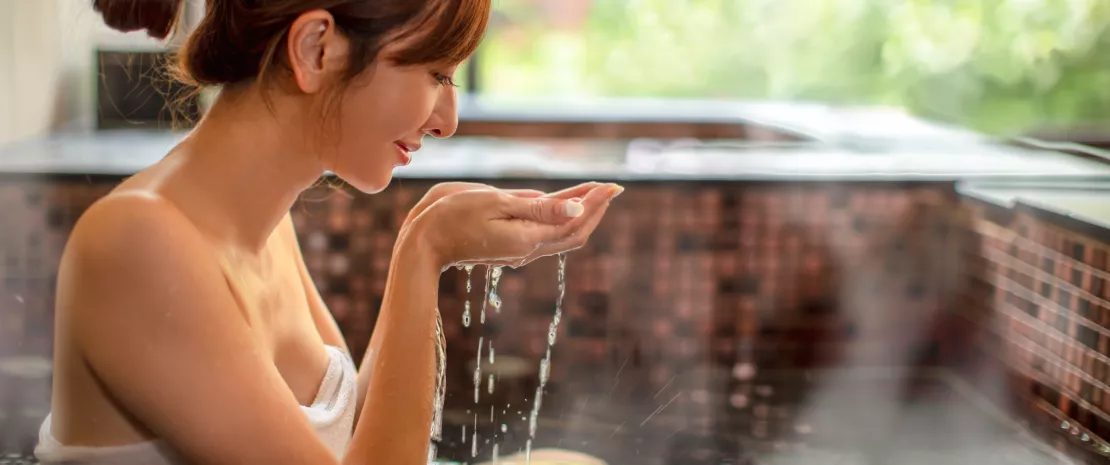Testing the waters: the link between hot springs and bacteria
Skin, digestion, joints... each hot spring has its own virtues. The list of benefits, though specific to each spring, is often long. How can we explain the results of these fountains of youth? Could it be their impact on the gut microbiota?
- Learn all about microbiota
- Microbiota and related conditions
- Act on your microbiota
- Publications
- About the Institute
Healthcare professionals section
Find here your dedicated section
Sources
This article is based on scientific information

About this article
The results of this study mean you’ll never look at your spa trip the same way. You booked a trip for one, but you mightn’t be the only one to benefit: the millions of bacteria in your gut microbiota may too.
So says a study in Japan, a country where (sidenote: Onsen Hot springs. ) are a true way of life. They’re credited with numerous benefits, for a wide range of ailments, including sleep disorders, musculoskeletal disorders, skin diseases, cardiovascular diseases, hypertension, and disorders of the gastrointestinal tract, to name a few.immune functionimmune function
The gut microbiota
A flora enriched in bifidobacteria...
For the good of science, 136 brave adults in good health (80 men, 56 women) happily agreed to be the guinea pigs in an experiment.
The program involved a daily bath lasting at least 20 minutes in a hot spring of their choice, for seven consecutive days, in Beppu, a city home to 2,000 springs.
After a week, the gut flora of those who chose bicarbonate-rich hot springs was greatly enriched in the bacterium Bifidobacterium bifidum, while the gut flora of those who opted for sulfurous baths was enriched in Ruminococcus2 and Alistipes.
Lastly, those who opted for simple springs (no minerals over-represented) saw their gut populations of Parabacteroides and Oscillibacter boosted.
... thanks to hot springs?
Since Bifidobacterium bifidum is universally recognized as a “good bacterium” (beneficial effects on constipation, immune function, etc.), it’s tempting to conclude that the “powers” of balneotherapy rest upon it. However, levels of this bacterium only increase in bicarbonate-rich waters, while the effect varies from one bicarbonate onsen to the next. Furthermore, microorganisms boosted by sulfurous or simple springs are known to have effects that are at times beneficial and at times deleterious.
Ultimately, it’s hard to draw any conclusions other than that certain hot springs may have an effect on the gut microbiota. The effect may merely be due to the composition of the water, to the length and temperature of the bath, to the relaxation provided, to the center chosen by the volunteer (a choice potentially influenced by social class or neighborhood) or even to the simple fact that the subjects involuntarily modified their habits, by avoiding certain small dietary extras, for example. Further experiments are required to shed light on the matter. At this stage, the answer remains unclear.













